Understanding Housing Support and Funding Opportunities for Families with Autism
Families with children on the autism spectrum often face unique challenges when it comes to finding suitable, affordable, and accessible housing. Numerous programs, grants, and resources exist to support these families, helping them access stable living environments tailored to their specific needs. This article explores various federal, state, and private support mechanisms, eligibility criteria, and organizations committed to facilitating housing opportunities for families impacted by autism.
Overview of Housing Funding Options for Families with Autism
When securing housing for individuals with autism, families have access to a variety of options supported by different funding sources. These include agency-owned housing, self-funded arrangements, and federal programs that provide significant assistance.
Agency-owned housing is operated by support service provider agencies. These agencies manage spaces designed for individuals with autism, offering varying levels of support, community integration, and emergency procedures. Families can obtain detailed information about specific models, including the support levels available and how these environments facilitate community participation.
Self-funded housing involves families purchasing or renting homes using private or public resources directly. This approach often requires families to consider resources such as donations, income, grants, foundation support, and tax credits. Carefully planning financing options is essential for secure housing that meets the needs of the individual.
Federal programs play a vital role in supporting autism-related housing needs. Notable initiatives include the Low Income Housing Tax Credit (LIHTC), the Home Investment Partnerships Program (HOME), and Community Development Block Grants (CDBG). These programs assist in financing the development and renovation of affordable housing units for individuals with disabilities, including autism.
Support services are further expanded through Medicaid's Home and Community-Based Waivers, which enable individuals with autism to receive necessary services while living in community settings. Eligibility for these programs often depends on income and asset assessments, with some assistance given higher priority based on disability status.
Apart from direct federal and agency programs, there are numerous other resources such as private grants, donations from charitable organizations like Autism Speaks, and support from state-specific developmental disability agencies. These combined efforts aim to provide accessible, safe, and supportive housing environments tailored to the needs of autistic individuals.
Families and advocates must stay informed of available programs and actively engage with agencies and organizations to navigate the application processes successfully. Tailored support and advocacy are crucial for accessing the full range of housing options and ensuring suitable living arrangements for individuals with autism.
For further exploration, families can search terms like “housing grants autism federal programs support services” to find specific grants, programs, and advocacy organizations dedicated to enhancing living conditions for autistic individuals.
Housing Support Structures and Programs
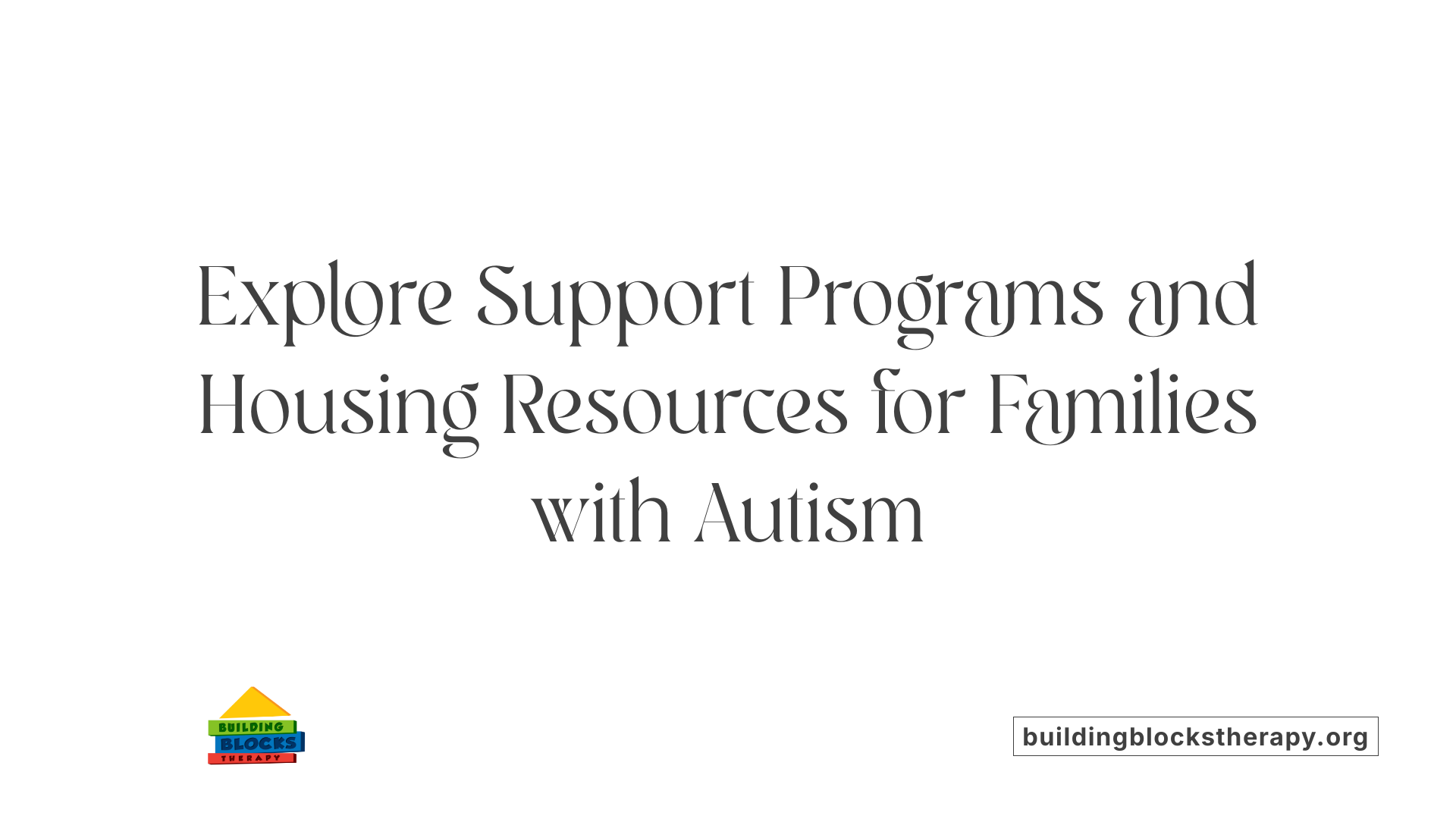
What are some programs and organizations that provide support, grants, or sensory packs for children with autism?
Families with autistic children have access to several resources aimed at enhancing living conditions and support. Various organizations and programs work to provide grants, sensory tools, and specialized environments that cater to the unique needs of children with autism.
One notable organization is Caudwell Children, which offers Autism Sensory Packs. These packs contain items designed to help children manage sensory sensitivities, including tools for hearing, vision, touch, and cognition. Such sensory packs can help children stay calm and focused, especially in unfamiliar or overwhelming situations.
In addition to sensory packs, support organizations across both local and national levels often distribute educational resources, funding opportunities, and sensory-friendly materials. These efforts target creating inclusive spaces such as autism-friendly centers that incorporate sensory zones—areas equipped with calming lights, textures, and sounds—as well as adaptive materials to support self-regulation and learning.
Various community programs also emphasize the importance of promoting awareness and accessibility. They often provide grants that assist families in making home modifications for accessibility, purchasing communication devices, or facilitating therapy and social skill development.
Support for children with autism is not limited to material aid; many organizations also offer training and counseling to help families navigate the complex challenges of autism, advocating for more inclusive community environments.
Overview of Housing Support Options for Families with Autism
Housing support structures range from agency-operated living arrangements to government-funded public housing programs and private community-based solutions. Each offers distinct benefits tailored to different needs.
| Support Type | Description | Additional Details |
|---|---|---|
| Agency-operated housing | Run by provider agencies offering support services alongside housing options. These models often include community integration and emergency procedures. | Support levels vary, and agencies may also help with crisis management and accessibility adaptations. |
| Public housing and vouchers | Managed by local authorities, providing subsidized apartments, townhomes, or homes for rent or mortgage assistance. The Housing Choice Voucher program (Section 8) allows families to rent in their communities with rent typically around 30% of net income. | Priority is often given to those with disabilities, and some vouchers can be transferred across states. Eligibility depends on income and social safety plans. |
| Private and community-based options | Families can purchase or rent housing independently, using private funds, donations, grants, or tax credits. Many non-profits also develop autism-friendly communities or supportive housing programs. | These options may include home modifications, special needs grants, or community-based settings for increased independence. |
Important Considerations
Understanding the eligibility criteria—such as a diagnosis of autism, income levels, age restrictions, and residency—is essential to successfully access support programs. While federal programs like HUD’s Low Income Housing Tax Credit or the McKinney-Vento Act provide foundational assistance, many local programs and charities supplement these supports.
Ultimately, a combination of government grants, charitable support, and private resources enables families to find suitable housing solutions that promote stability, independence, and improved quality of life for individuals with autism.
Eligibility and Application Process for Housing Assistance
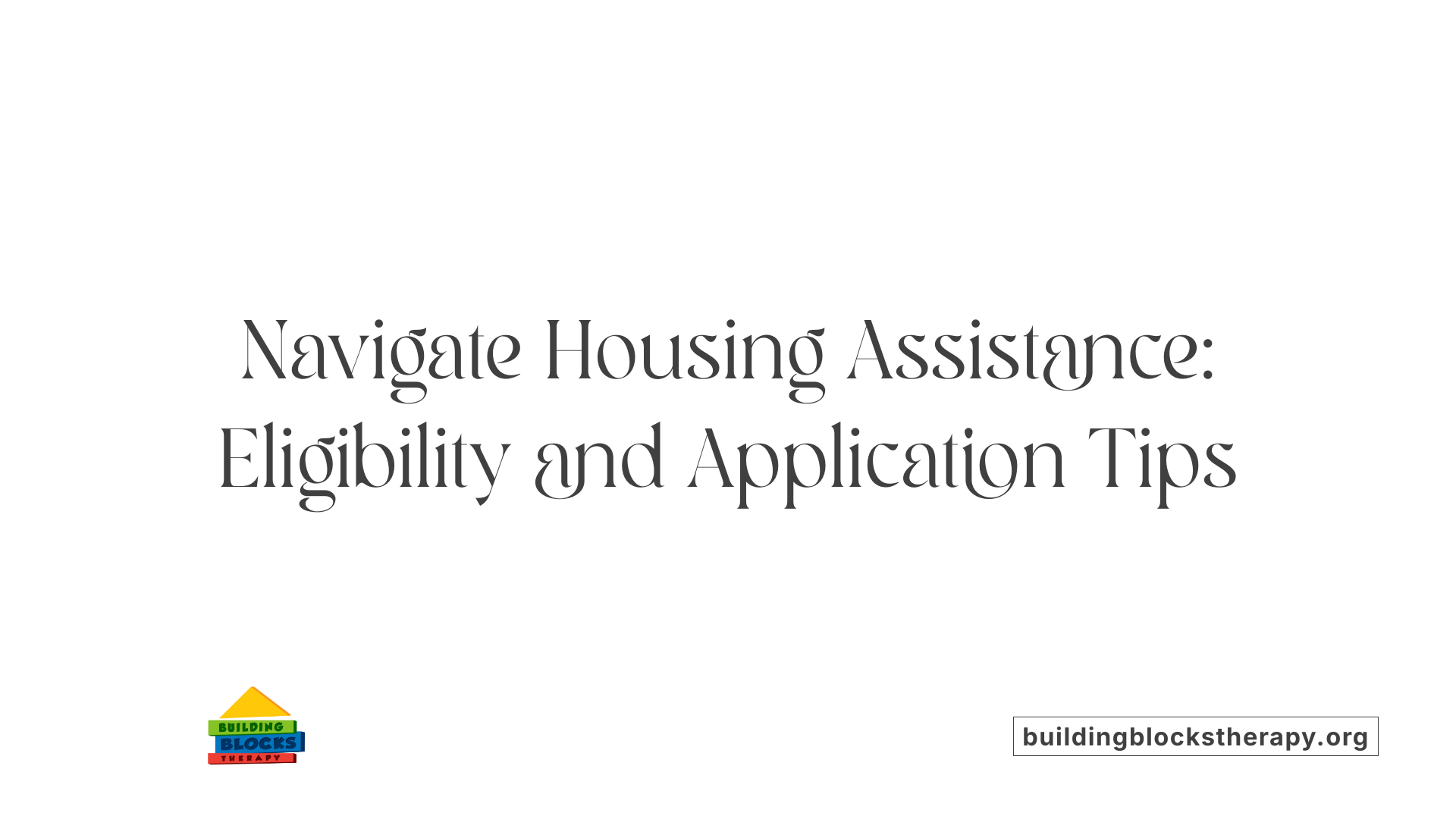
What income and disability eligibility criteria are necessary to access housing assistance?
Families seeking housing support for members with autism must meet specific income and disability requirements. Generally, eligibility depends on income levels that do not exceed median income thresholds for the area, ensuring that assistance is directed toward those with limited financial resources. Disability status, verified through medical documentation, is essential, particularly for programs tailored for individuals with autism. Children under 18 are often eligible, and proof of diagnosis is typically required.
Many programs prioritize applicants with disabilities, providing higher chances of placement on waiting lists. For example, local housing authorities often give preference to families with verified disabilities, aiming to improve access to safe, affordable housing.
How do families apply for housing programs?
Applying for housing assistance involves several steps. First, families must research local public housing authorities (PHAs) and federal programs like Housing Choice Vouchers or subsidized housing options. Submission of an application includes providing proof of income, disability diagnosis, residency, and sometimes additional documentation such as birth certificates or medical records.
Many programs require an interview and assessment to confirm eligibility. Once approved, families are placed on waiting lists, which can vary in wait times based on demand and priority status.
Some programs, like the Ontario Autism Program, provide direct funding to help families access housing-related costs, streamlining the process for eligible applicants.
Who are the priority groups for housing support?
Priority is often given to individuals and families with significant financial needs, disabilities, or urgent housing situations. Families with children with autism, especially those facing homelessness or living in unsafe conditions, are usually high on the list.
Disability status can offer increased priority, as federal laws like the Americans with Disabilities Act (ADA) and Section 504 aim to prevent housing discrimination and support equitable access.
In addition, veterans, active-duty military families, and those affected by disasters may also receive prioritization through specific grants or emergency housing programs.
Overview of Assistance Options and Resources
Below is a table summarizing common programs, eligibility criteria, and application details:
| Program | Eligibility Criteria | Application Process | Additional Notes |
|---|---|---|---|
| Housing Choice Vouchers (Section 8) | Income below 50% of area median, verified disability status | Apply through local PHA, document income and disability | Vouchers can be transferred across states |
| Public Housing | Income limits, residency, disability proof | Submit application, pass eligibility screening | Priority for families with children, disabilities |
| Ontario Autism Program Funding | Family with child under 18 with autism, residency in Ontario | Application through provincial agency | Provides direct housing-related financial support |
| Federal Emergency Management (FEMA) | Displacement due to disasters, low-income families | Apply during or after emergencies | Supports temporary or permanent housing needs |
Understanding these processes helps families navigate the system efficiently and access necessary supports for stable living environments for loved ones with autism.
Role of Advocacy and Community Engagement in Housing Access
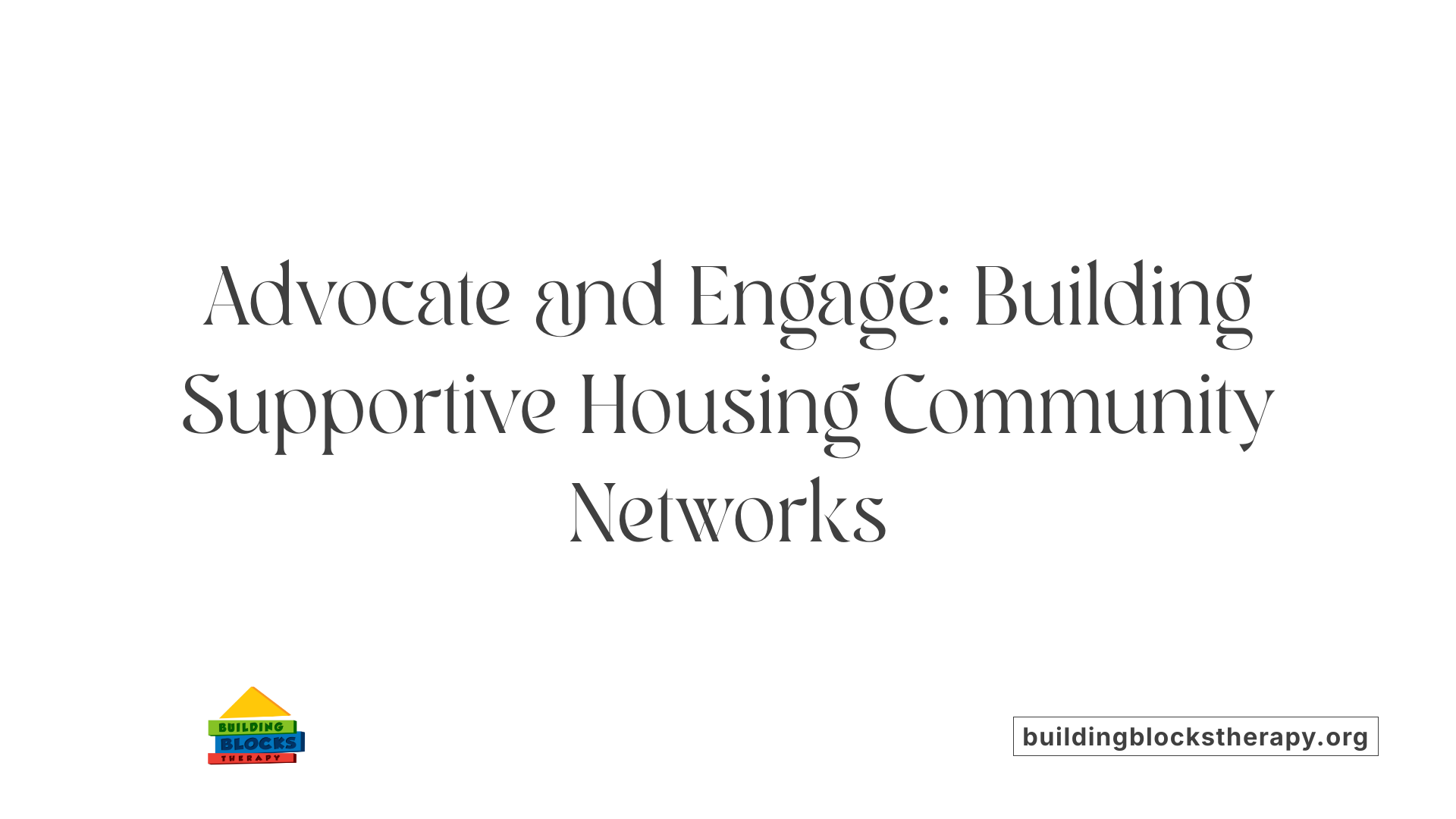
Are there any grants or assistance programs that provide housing support for families with autistic children?
Yes, families with autistic children have access to various grants and assistance programs designed to support housing needs. These programs come from multiple sources, including federal agencies, state governments, nonprofit organizations, and charitable foundations.
Federal programs such as HUD's Section 811 Supportive Housing program help create accessible, affordable housing options specifically for individuals with disabilities, including autism. The Housing Choice Vouchers (commonly known as Section 8) enable families to rent in their community by subsidizing rents and sometimes even mortgages. Medicaid waivers and the Family Unification Program are additional federal initiatives that provide support tailored to special needs families.
State and local governments also offer diverse programs. For example, the Ontario Autism Program provides significant funding—$20,000 for children under six and $5,000 for those over six—to assist families in securing suitable housing. Many nonprofit organizations and charitable foundations, such as Autism Speaks and the Autism Spectrum Disorder Foundation, provide grants to cover home modifications, therapeutic equipment, and supportive living arrangements.
An essential resource for families is the Autism Speaks Housing and Residential Supports Tool Kit, which guides families through available funding options, eligibility criteria, and application procedures. Additionally, supportive housing options like public housing, housing vouchers, and community-based settings help many families find affordable and accessible living spaces.
Understanding the multiple layers of support—from government programs to private grants—is crucial for families seeking appropriate housing solutions. These resources aim to improve quality of life, foster independence, and promote community integration for individuals with autism.
Understanding Legal Rights and Fair Housing Practices
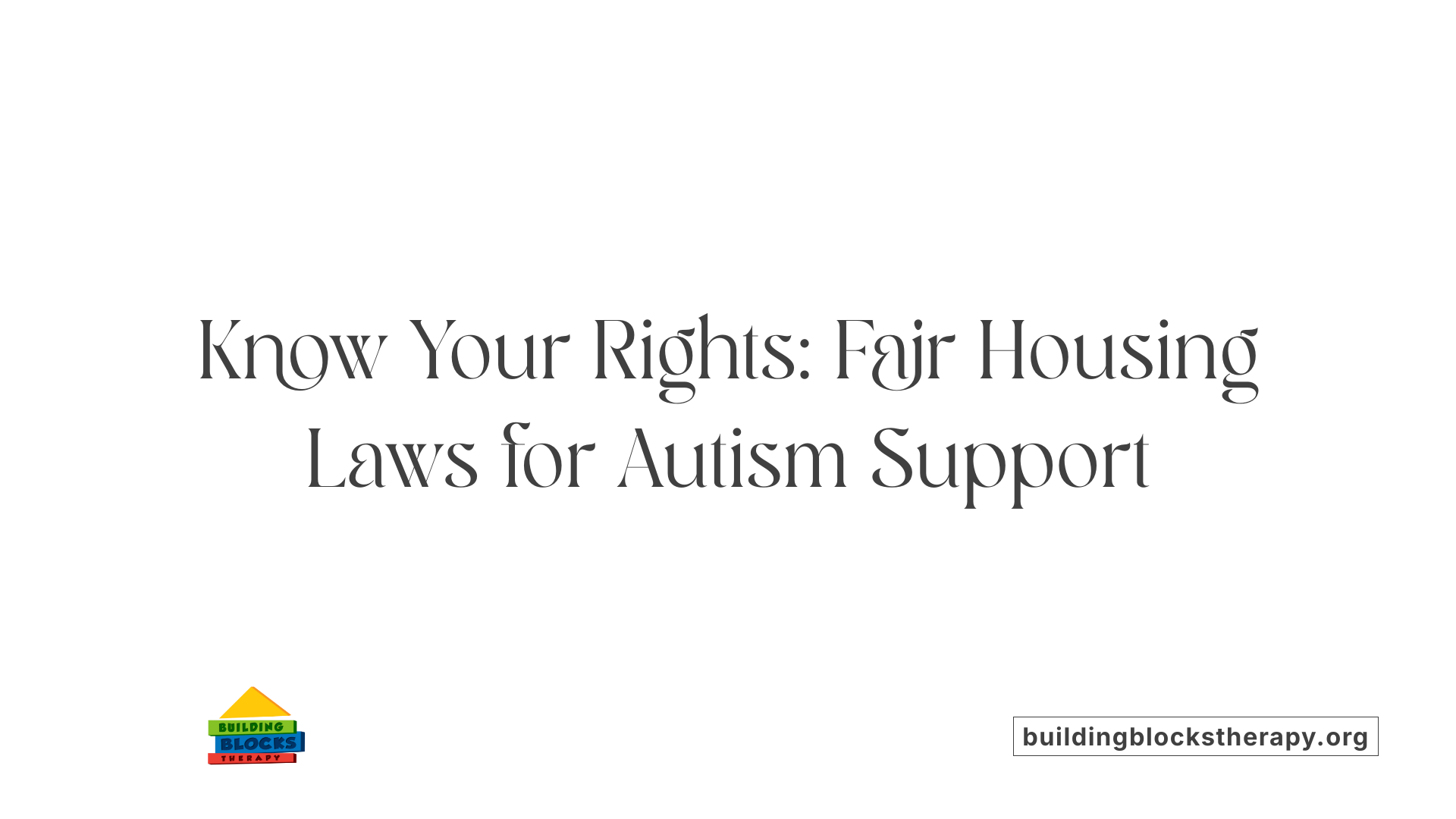
What are the rights under the Americans with Disabilities Act (ADA) and section 504, which prohibit discrimination against people with disabilities in housing?
The Americans with Disabilities Act (ADA) and Section 504 of the Rehabilitation Act play crucial roles in protecting individuals with autism from housing discrimination. These laws prohibit discrimination by housing providers, including landlords and property managers, based on disability.
Under these protections, families and individuals with autism have the right to request reasonable accommodations. This can include modifications to physical structures, such as installing ramps or wider doorways, and adjustments to policies or practices to support accessibility and inclusion.
Legal rights under these laws empower families to challenge unfair treatment and demand accessible living environments. They also promote fair access to various housing options, helping families attain independent living and community integration.
By understanding these rights, families can better advocate for themselves and ensure they are not denied housing opportunities due to misconceptions or prejudice.
Additional information about housing rights and laws for autism can be found by searching for "ADA housing rights autism discrimination laws."
Support Resources and Advocacy Organizations
Numerous organizations offer vital support and resources for families seeking housing options for loved ones with autism. The Autism Housing Network is a prominent source of information and community support, providing families with tools and connections to navigate housing challenges.
Autism Speaks is another significant organization that not only advocates for research and awareness but also supplies a list of grants from national bodies to help cover housing-related expenses. These grants can aid families in securing accessible housing and necessary modifications.
Disability advocacy groups, including local and national entities, work tirelessly to promote fair housing policies and protect the rights of individuals with autism. They often provide guidance on navigating federal laws like the Americans with Disabilities Act (ADA) and Section 504, which prohibit housing discrimination.
Together, these organizations play a key role in facilitating access to housing, advocating for policy changes, and offering direct financial support to families ensuring supportive and accessible living environments for individuals with autism.
Conclusion and Pathways Forward for Families with Autism in Housing
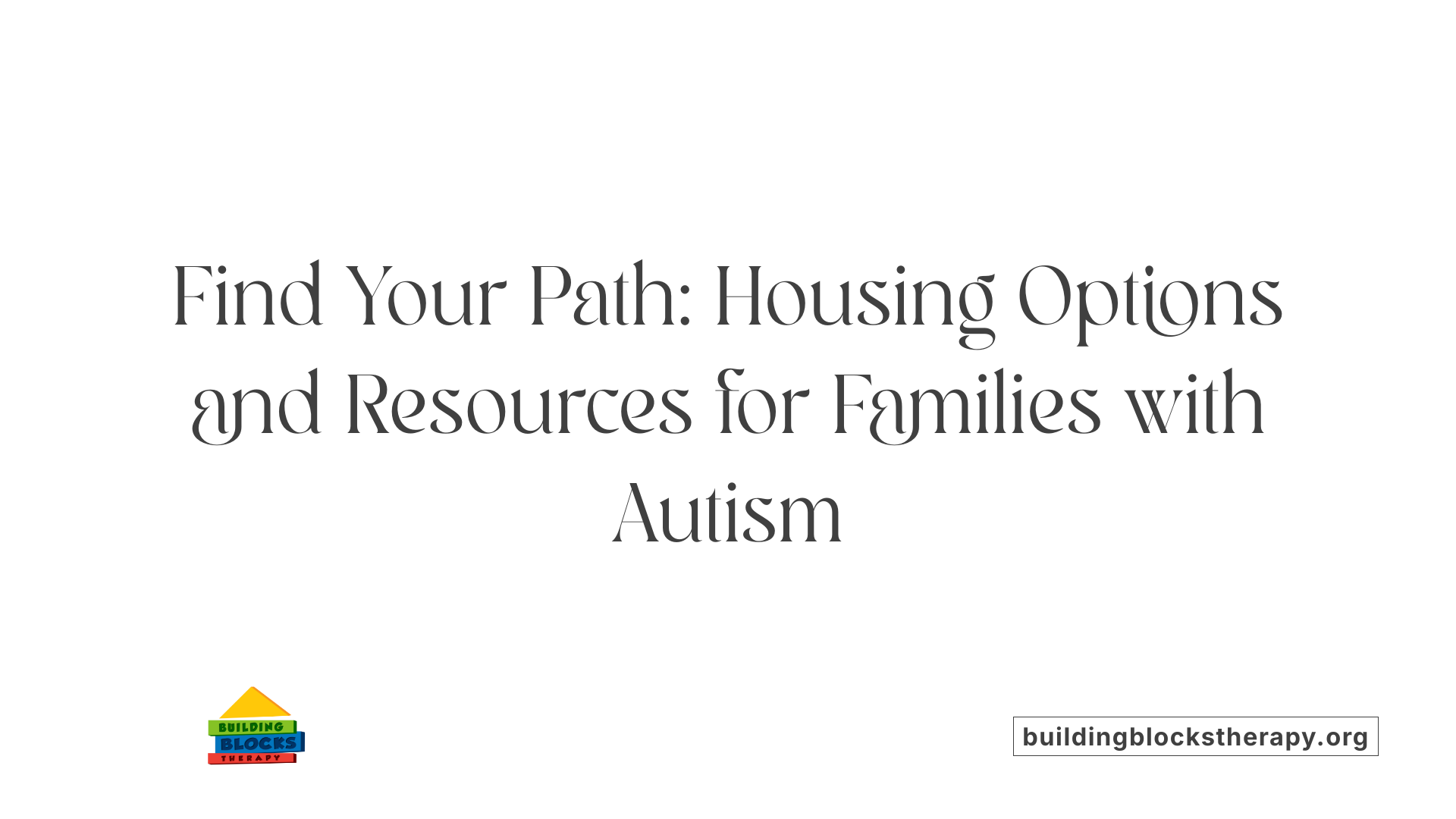 Families supporting loved ones with autism have access to a variety of housing options tailored to their needs. These include agency-owned homes operated by support providers, self-funded housing purchased directly by families using private or public resources, and numerous federal programs such as HUD’s Low Income Housing Tax Credit, the Home Program, and CDBG grants that assist with housing costs.
Families supporting loved ones with autism have access to a variety of housing options tailored to their needs. These include agency-owned homes operated by support providers, self-funded housing purchased directly by families using private or public resources, and numerous federal programs such as HUD’s Low Income Housing Tax Credit, the Home Program, and CDBG grants that assist with housing costs.
Public assistance plays a vital role, especially for low-income families, offering rental subsidies, housing vouchers, and options for homeownership through programs that may include transferability across states. Local housing authorities also offer numerous tailored solutions like public housing and specialized subsidy programs, which can be essential for families navigating income limitations or disability-specific needs.
The importance of advocacy cannot be overstated. Staying informed about available rights, such as those under the Americans with Disabilities Act (ADA) and Section 504, and understanding eligibility criteria for various programs empower families to access necessary support. Connecting with organizations like Autism Speaks, the Autism Housing Network, and local agencies can provide additional guidance, resources, and financial aid.
Resources for support extend beyond housing assistance. Grants for communication devices, therapeutic services, and recreational needs, as well as emergency federal programs like FEMA’s IHP or Coast Guard grants for active-duty military families, help ensure comprehensive care and stability.
Navigating housing options requires awareness and proactive advocacy. By leveraging available programs and organizations, families can find suitable, accessible, and supportive housing solutions that promote independence and improve quality of life for individuals with autism at every stage.
Empowering Families and Shaping a Supportive Future
Accessing appropriate housing support is vital for families with autism to ensure stability, accessibility, and a high quality of life for their loved ones. By understanding available federal, state, and private programs, advocating for their rights, and leveraging community resources, families can navigate the complex landscape of housing assistance. Continued advocacy and awareness are essential to expand opportunities and create inclusive, supportive living environments for all individuals on the autism spectrum.
References
- Funding for housing | Autism Speaks
- Housing Resources for Autism - Websites and Program | IACC
- Autism grants for families
- Financial Resources to Rent and Buy a Home - Autism Now
- Discover How to Apply for Housing Grants for Families with Autism
- Autism Housing Grants: Help Your Child Live Independently
- Funding for housing | Autism Speaks






